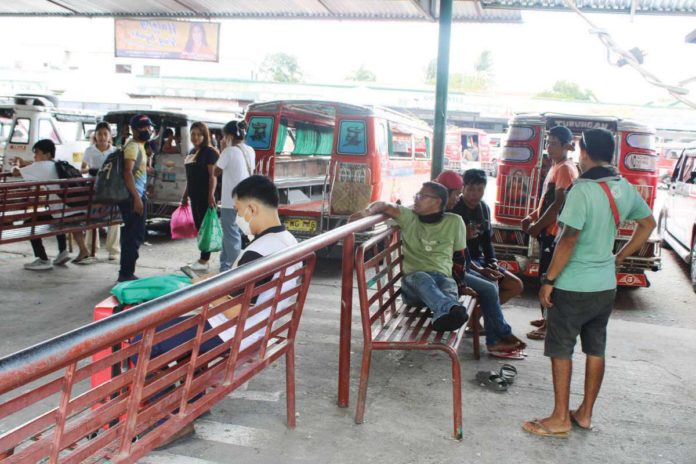
BY GEROME DALIPE IV
ILOILO City – Public utility jeepney (PUJ) operators in this city have expressed support to the newly created terminal inspection board.
This board is designed to oversee and monitor the overall operations and management of all public transport terminals operating in the metropolis.
Rizalito Alido, chairman of the Western Visayas Alliance of Transport Cooperatives and Corporations, Inc. (WVATCCI), voiced confidence the newly approved terminal board will also work closely with PUJ operators, drivers, and other stakeholders to ensure a more organized and efficient flow of traffic.
The creation of the terminal inspection board is part of the city’s broader efforts to improve its terminal management system, especially in light of the growing urbanization and increasing number of vehicles on the road.
Alido stressed that PUJ operators believe that this initiative will help create a more disciplined and orderly traffic and terminal environment, benefiting both the drivers and the commuting public.
The inspection board is seen as a positive step towards addressing the various challenges faced by the city’s transportation sector, such as congestion in terminals during rush hours, enforcement of traffic rules, and the safety of commuters.
In his recent press briefing, Mayor Jerry Treñas acknowledged various issues hounding the public transport terminals, especially during rush hours.
Treñas said he would meet with the city government’s traffic czar Uldarico Garbanzos to reassess numerous complaints from passengers such as dilapidated facilities and stinking toilets.
“I will be speaking with Col. Garbanzos since the jeepneys are causing congestion. We need to evaluate whether we should increase the number of jeepneys or take other actions. There’s a shortage of modern jeepneys,” stressed Treñas.
During their special session on Monday, the City Council approved the ordinance for the creation of a traffic inspection board.
Councilor Sedfrey Cabaluna, chairperson of the council’s transport committee, said the creation of the Transport Terminal Inspection Board (TTIB) is necessary to address various issues hounding public terminals amid the implementation of the enhanced Local Public Transport Route Plan (LPTRP) of Iloilo City.
The above-proposed policy-making body will primarily be responsible for the inspection, regulation, and classification of the jeepney terminals and seaports in Iloilo City.
“It shall formulate quality standards that must be complied with to promote and protect the interest and welfare of commuters and riding public,” read Cabaluna’s committee report.
The council passed on first reading of the proposed ordinance during their session last week.
The city government recently implemented the enhanced route plan despite hesitations from various stakeholders and transport sectors due to a lack of proper mechanisms, training, and government support for the transport cooperatives.
While the Land Transportation Franchising and Regulatory Board (LTFRB-6) in Western Visayas reported a 72.2 percent franchise consolidation rate, the transport coop officials lamented about their dismal state under the fleet management system.
In Iloilo City, the DOTr approved 25 rationalized routes out of the original 35 routes before the approval of the LPTRP.
Out of 2,535 traditional jeepneys in the city, the DOTr authorized 1,782 modern jeepneys to ply these 25 approved rationalized routes comprising old and new routes. Some 1,782 of these awarded units have been allocated to 14 transport cooperatives and two corporations.
To prevent corruption, the TTIB will create an inspection team and should have proper IDs, uniforms, and inspection documentation.
The inspection team will also provide a detailed checklist for compliance of the transport terminal operators./PN





